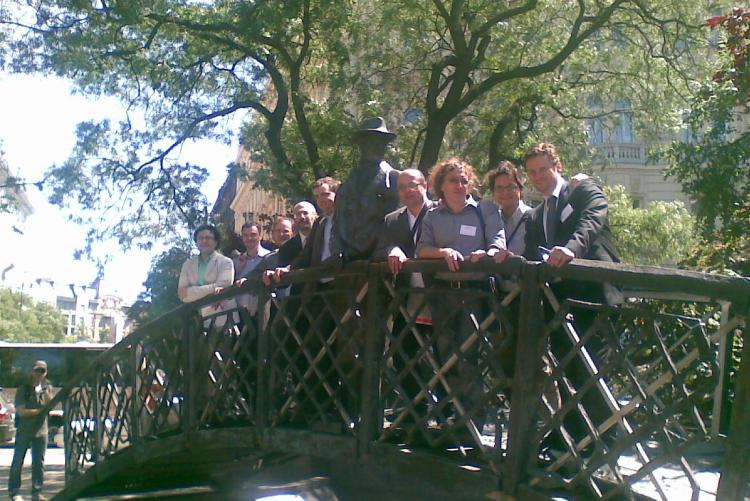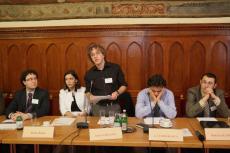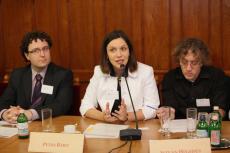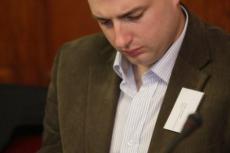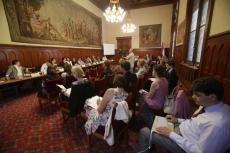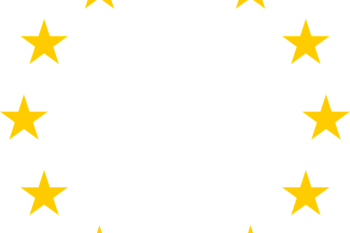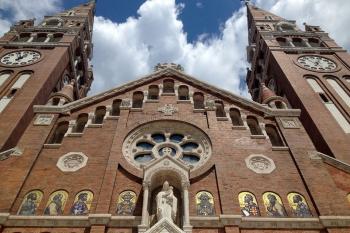European Elections 2009 - Europeanization: Parties, Institutions, Member States
At the statue of Imre Nagy - Martí Grau i Segú, Martin József, Enyedi Zsolt, Grigorij Mese¾nikov, Václav Nekvapil, Hakan G. Sicakkan, Hegedűs István, José Ignacio Torreblanca, Alexander H
The Hungarian Europe Society held an international workshop on 22-23 May 2009 (Friday afternoon and Saturday) in the Gobelin Hall of the Hungarian Parliament.
2009 is a year of historical importance for Hungary and Europe. It marks the next European elections; the fifth anniversary of many post-communist states’ accession to the European Union and the “Big Bang” enlargement of the „old” European Union; as well as the twentieth anniversary of the crucial year of political transition to democracy in Central Europe. The workshop aimed to reflect upon the adjustment of the political elites, the citizens and the institutions to the historical and political changes of the past two decades in both the former EU-15 and the recently joined member states, whilst focusing on the process of Europeanization inside the whole European Union. The analysis of the upcoming European Parliament elections as well as the search for the development of the European political sphere also expressed the all-European approach of the event.
István Hegedűs was interviewed by InfoRádió before the workshop.
| Attachment | Size |
|---|---|
| 196.29 KB | |
| 134.31 KB |
